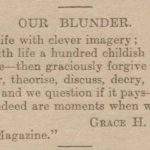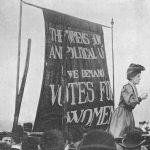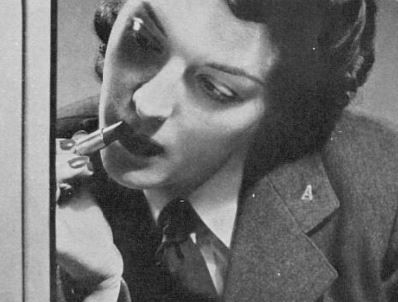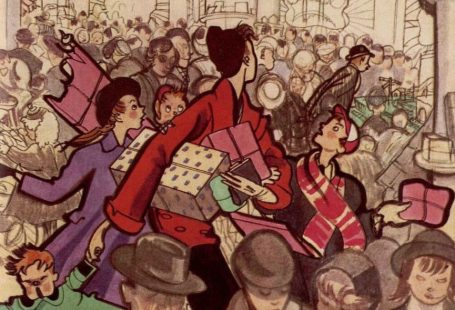This year, in recognition of the centenary of the Representation of the People Act 1918, we will showcase the lives and activities of women involved in the Suffrage movement of the late nineteenth and early twentieth century.
Despite making headlines for their activities many of these women are now forgotten.
In this blog post we will revive the memory of Irish Suffragette, Anna Garvey Kelly, whose support of the cause of Suffrage saw her spend a month in Holloway prison in the winter of 1910. Using newspapers we have pieced together something of her life and activities.

Searching for Anna Garvey Kelly on the internet returns just one result, a photograph of a lady in a very striking hat. The photograph is part of the Sheehy Skeffington Photograph collection held by the National Library of Ireland. There is nothing in the photograph to hint at her character. She could be equally described as formidable, kindly, pleasant, matronly or determined.
Newspapers give life to this otherwise impassive face.
Piecing together someone’s life from newspapers and historical records is like working through a jigsaw puzzle having lost the lid of the box, you don’t know what the full picture is supposed to look like, but if you are determined and methodical you can piece together the image.
Imprisoned in England

It is not at all unusual, when reconstructing someone’s life, to enter the story somewhere in the middle, or even at the end. We first encounter Mrs Garvey Kelly in 1910. It is November and she has been sent to prison in London for ‘breaking Cabinet Minsters’ windows’. From this first encounter we learn that Anna is a member of the Irish Women’s Franchise League and had traveled to England specifically to engage in disruptive activities. Anna was imprisoned with six other Irish suffragettes. She was finally released on Christmas Eve 1910. On their return to Ireland the Women’s Franchise League held a procession through the streets of Dublin. The Irish Independent described the scene:
‘A large crowd congregated outside the Antient Concert Buildings, from where a start was made at 7:30pm. There was some slight hissing when the processionists, wearing their regalia and carrying banners, left the Antient Concert Buildings, and proceeded to march up Brunswick street, accompanied by a number of men carrying lighted torches. Opposite the Queen’s Theatre they were met by the Protestant Row Band, which was followed by a large crowd. On returning to the Antient Concert Buildings a meeting was held and was addressed by Mrs. Sheehy-Skeffington (who presided), Miss Stephenson, and others.’
Further research revealed this was not Anna’s first brush with the law. Seven months before she was imprisoned in England Anna was in the newspapers for ‘chalking the footpath’ in Dublin.
Christabel Pankhurst’s Dublin visit

In March of 1910 Anna was ‘summoned to at the Police Court… for having on the 10th inst. wilfully prevented and interrupted the free passage of persons along the pathway at Dawson Street. It appeared that the defendant was engaged in chalking on the footpath an announcement that Miss C. Pankhurst would speak in the Rotunda on the 11th inst.’.
The newspaper report included Anna’s full address ‘Boyne Villa, Oakley Road’. However Anna does not appear at that address in the 1911 census. In 1901 she and Andrew are found at Anna’s younger brother’s house in Meath.
Search tip: Women are often referred to by their husband’s name, and with no first name, even if their husband is deceased, e.g. Mrs Garvey Kelly, rather than Mrs Anna Garvey Kelly.
Anna appears to have become active in the suffrage movement after the death of her husband in 1907 (his obituary notice appeared in two newspapers). Using historical records available on our sister site Findmypast we discovered that Anna, nee Fingan (Finegan), married Dr. Andrew John Garvey Kelly in Dublin in 1874, when Anna was about 25 (see note below). Andrew added ‘Garvey’ to his surname in honour of his mother whose maiden name was Garvey. This addition certainly helped in searches for Anna, as Kelly is a common surname and more challenging to trace. As yet we have found no evidence of the couple having children.

Anna is largely absent from genealogical sources, but more of her story can be told through newspapers. Anna continues to be mentioned in newspapers up until 1912. In late June of that year Irish suffragettes met at the Phoenix Park and Anna was one of the speakers.
The women Suffragists had another outing yesterday in Phoenix Park. Mrs. Connery opened the hall. One would suppose, she said, that every baby girl was born with needle and thread in one hand and a rolling-pin in the other. Girls, she claimed, had natural gifts as well as boys, and the girls and women engaged in the women’s franchise movement were out to demand fair play in their own interests and in the interests of humanity. The Women’s Franchise League was not attached to any political party. Sympathy and help came from all sides, and was accepted. Mrs. Garvey Kelly said the women’s movement was now in the forefront one of practical politics. Men of intelligence supported it, and as for the stupid fellows, the women could do without them. (Laughter.) Miss Bloxham, who was received with chaffing remarks, said she did not mind, while she knew that some of her interrupters could not themselves make speech. The freedom of the sex was as dear to women as the freedom of their country to the Nationalists. It was mere hypocrisy to be shocked when women broke windows. Every intelligent method had been tried before resorting to glassbreaking, but no notice was taken.
Absent from the history books, through newspapers Anna is revealed as a formidable and vibrant supporter of women’s rights in Ireland in the years leading up to the Representation of the People Act in 1918.

A note on the research
Finding Anna required some lateral thinking. Searches on Anna Garvey Kelly yielded nothing in either newspapers or family history databases, we then switched to searches on ‘Garvey Kelly’ and this led to both her husband’s death notice and her own arrests. We narrowed our searches further to ‘Mrs Garvey Kelly’ to strip out results where the names Garvey and Kelly appear next to one another in news stories. After the initial finds in newspapers we had to side step and look to her husband to discover more.
Having seen, from his death notice, that Andrew had served as a military doctor we considered that he might have moved between Ireland and the UK, so we broadened our search beyond Ireland. However we did not find any military service records, and in fact entries for Andrew were minimal.
Finding Andrew was further complicated by interpretations of his name which placed the ‘Garvey’ portion of his double barrelled name into either his first or last name. In the end we discovered him by searching on Andrew John Garvey Kelly with name variants ticked. This returned a result of Andrew J G Kelly, a physician and surgeon, living in West Derby, Lancashire, with! as luck would have it… his brother-in-law St George B Finegan, both born in Ireland.
At this point we crossed our fingers and hoped that this was his wife’s brother and not his sister’s husband, and by a stroke of luck it was. We went in search of a marriage between an Andrew Kelly and an Anna Finegan, we found one listed in 1874 where the groom’s father’s name was listed as Nicholas (the same name mentioned in Andrew’s death notice) and the rest of the story unfolded.
Through our research we were able to piece together a small family tree for Anna. We have made this a public tree on our sister site Findmypast (requires registration to view). Click here to view.
Documents regarding Anna’s 1910 arrest and imprisonment are available in Findmypast’s Suffragette collection – information on Anna in that database was augmented by the research carried out here. The original records did not contain her maiden name or her estimated birth year.
Discover more forgotten suffrage stories in our blog and in our newspapers.
Register now and explore the Archive






